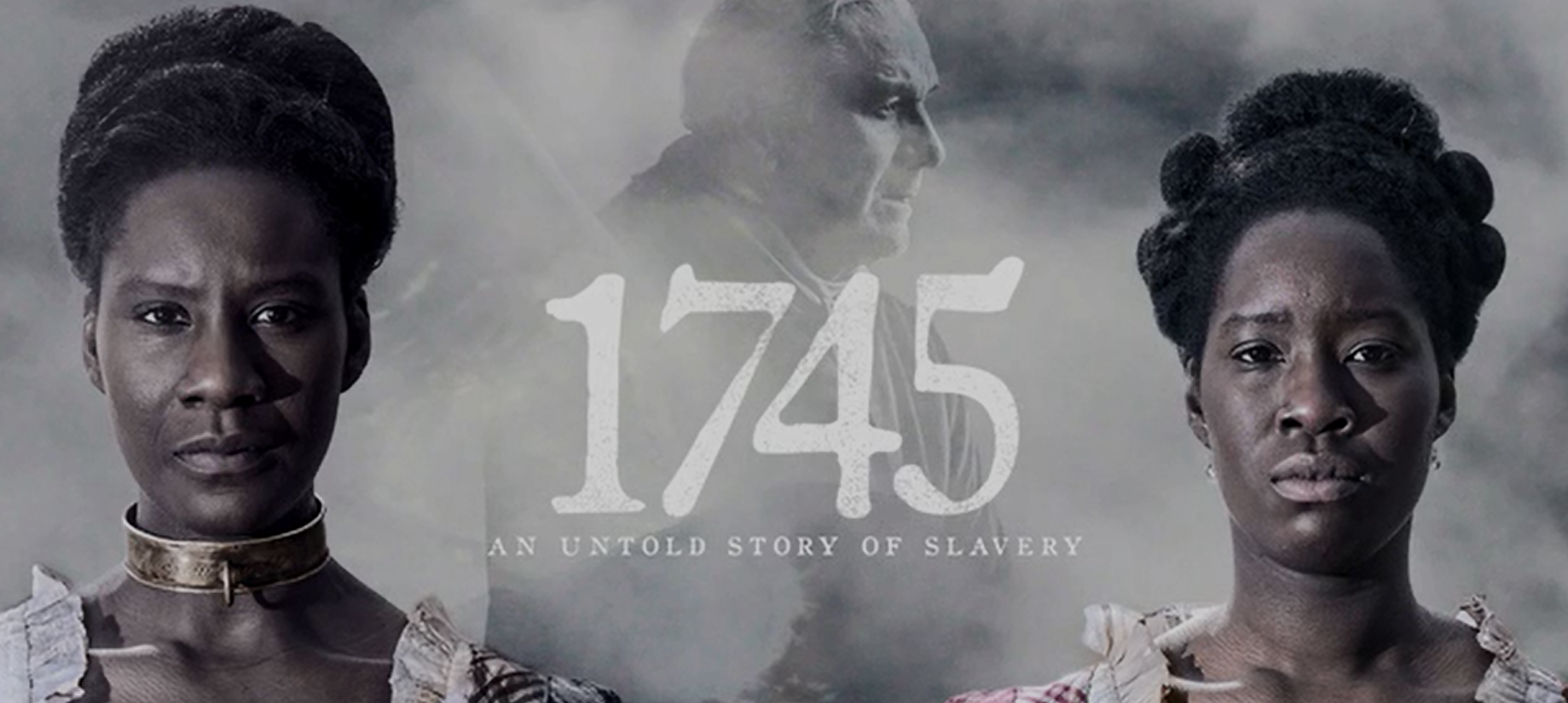Solas Festival 2018
22 - 24 June 2018
In 2018, the collaboration between the UNESCO Chair project and the Solas Festival was continued, which led to a new UNESCO Chair strand at the festival. This year the UNESCO Chair had it's own tent, shared with the Scottish Refugee Festival.
 The Welcome hut and the UNESCO Chair tent
The Welcome hut and the UNESCO Chair tent
Photo: Christian Hanser
Learn Arabic with a Palestinian flavour
This workshop, led by the Online Palestinian Arabic Course team, started with start with a taster Arabic lesson, using materials developed for the OPAC course. Participants were then given the chance to ask questions about the OPAC project, issues surrounding technology & remote learning, or the taster lesson itself. The second half of the workshop was a guided lesson through preparing za’atar, a typical Palestinian condiment. The lesson was in both Arabic and English and also explored the affective dimensions of the food being prepared. The session ended with participants enjoying the food they had made, while listening to Palestinian poetry and music connected to the ingredients used.
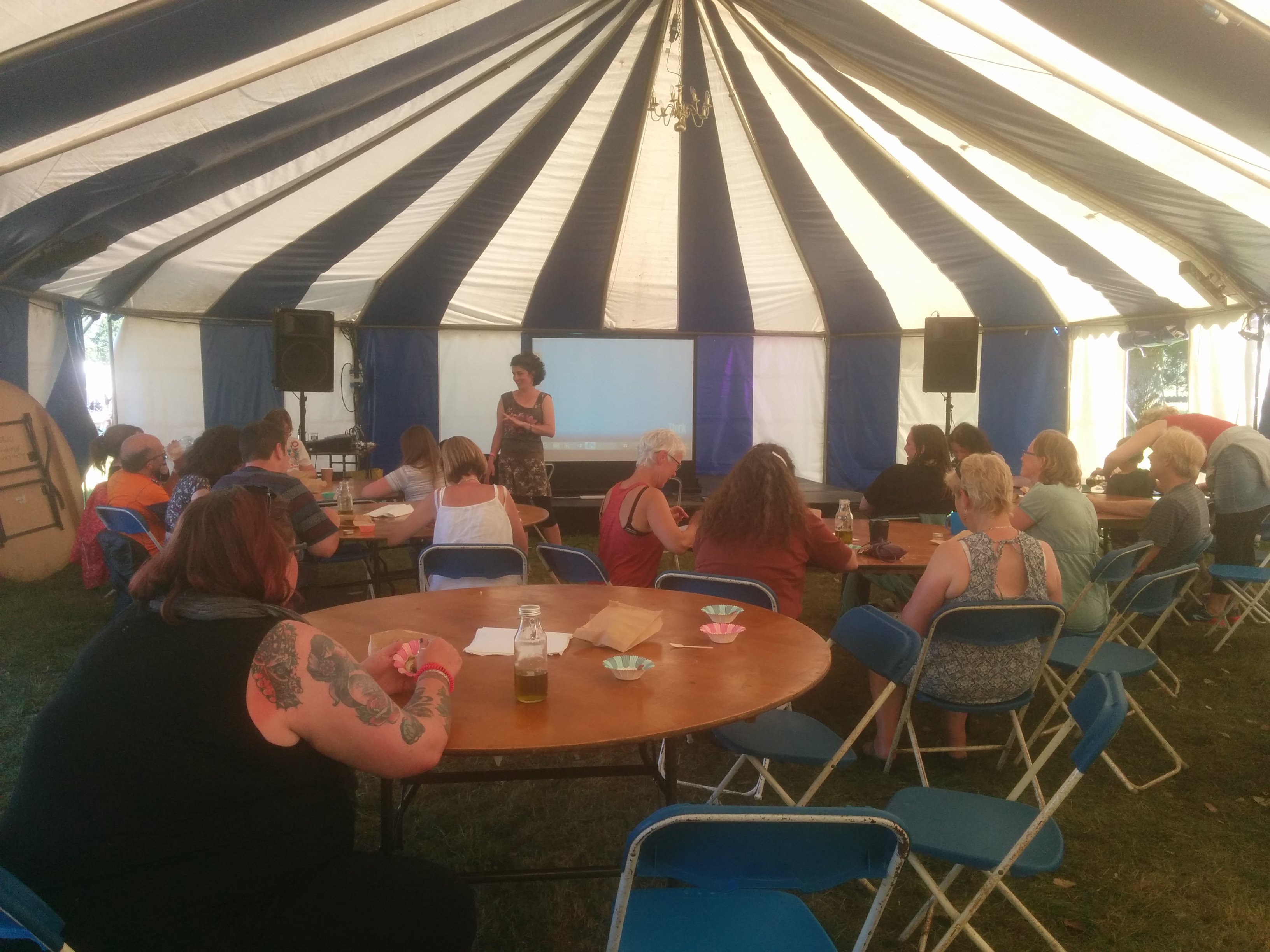 Esa Aldeghieri leading the Palestinian Arabic session
Esa Aldeghieri leading the Palestinian Arabic session
Photo: Bella Hoogeveen
The Welcome Hut
The Welcome Hut, created by Christian Hanser, is a mobile cultural centre for the art of hospitality. This roadworthy tiny house shepherd's hut is an open invitation to sit around the wood fire stove, tell life stories, decelerate and daydream. The hut is usually based in France, but since November 2018 it is in Scotland as part of a Mr Hanser's doctoral research. The hut is available to book and delivers work in villages and small communities or work places to celebrate local micro-hospitalities!
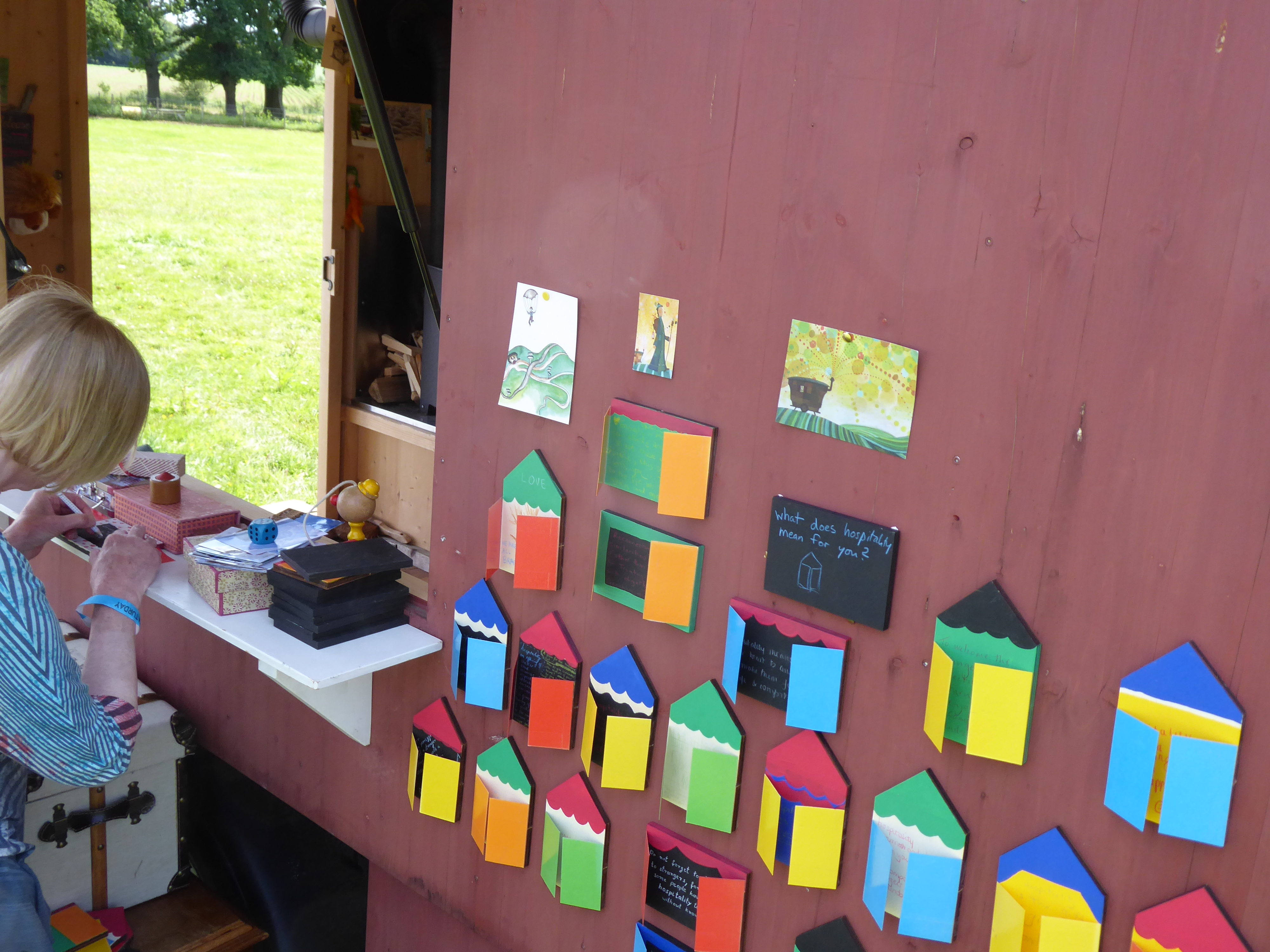 Writing what home means to you at the Welcome Hut
Writing what home means to you at the Welcome Hut
Photo: Christian Hanser
Alison Phipps repeat of UNESCO Chair Annual Lecture
This year too Professor Alison Phipps will deliver the repeat of her UNESCO Chair Annual Lecture. Abstract of her talk below.
Do you get my drift?: ‘Sankofa’ and the Arts of Integrating the old with the new
With Gameli Tordzro, Tawona Sithole, Naa Densua Tordzro
This lecture mined the contested concept of Integration for its history, variation and substance. It considered the important work of law and social policy in developing frameworks and duties for integration, especially with regard to the work of New Scots Integration Strategy, Scotland. It then moved to examine the place of concepts of integration in conflict transformation, international relations and trauma healing. Finally it developed understandings of integration from indigenous sources of knowledge, looking at the concept of sankofa, indigenous practices of integration, and the decolonial thought.
With the new focus on languages and arts in the processes in individual and intercultural integration the lecture worked multilingually and artistically, as well as through more traditional forms of research presentation.
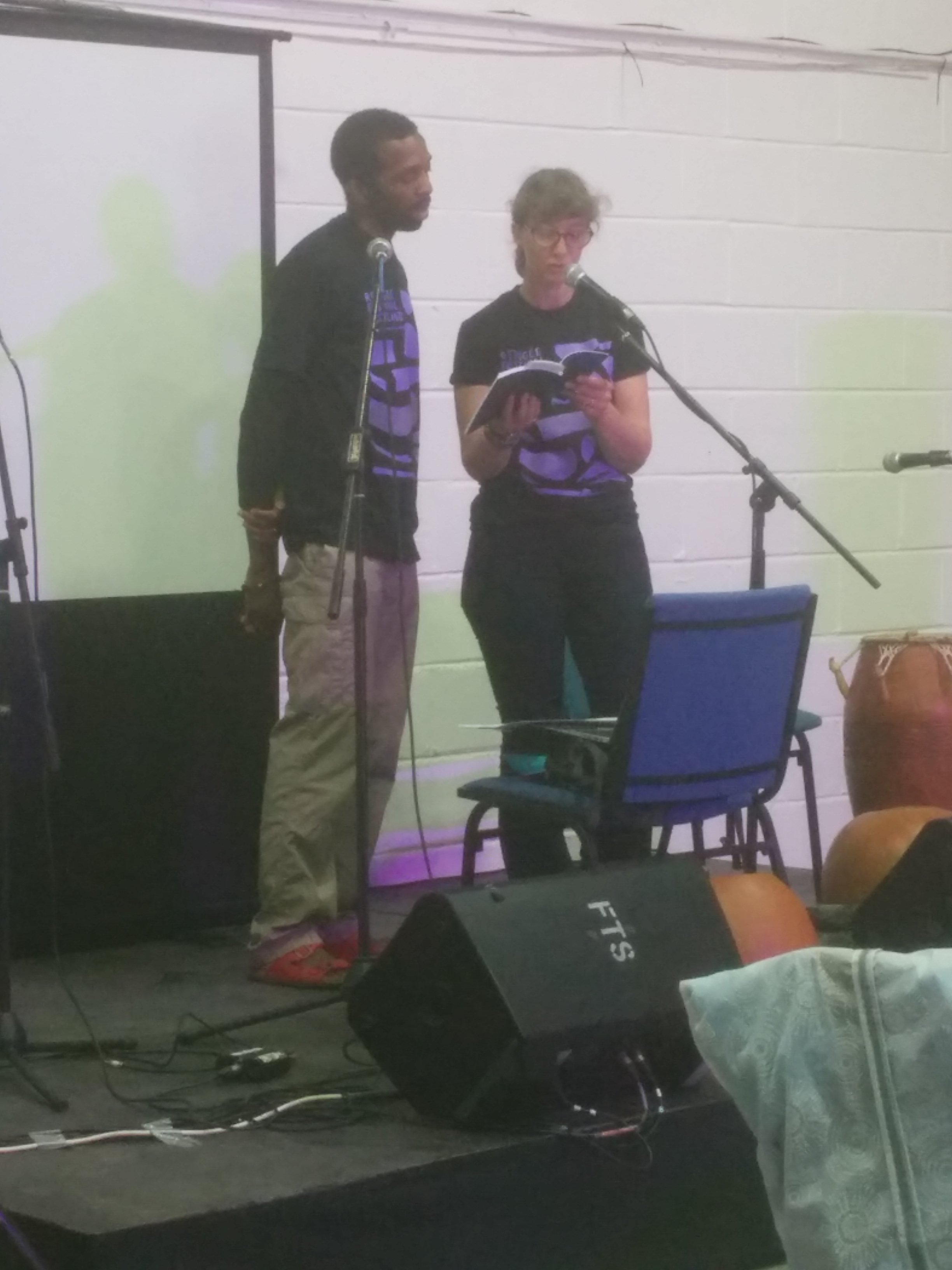 Alison Phipps and Tawona Sitholé reading from their poetry anthology The Warriors Who Do Not Fight
Alison Phipps and Tawona Sitholé reading from their poetry anthology The Warriors Who Do Not Fight
Photo: Bella Hoogeveen
Gameli Tordzro - UNESCO RILA Artist in Residence
Mr Tordzro delivered a music workshop and a storytelling workshop this year.
Tawona Sitholé - UNESCO RILA Artist in Residence
Ideal for beginners and seasoned writers alike, Tawona 'ganyamatope' Sitholé led a creative session of writing and conversation. A sharing of techniques, approaches and inspiration for creative writing of poetry and prose.
He also led a one-hour long scratch performance, welcoming people into a storytelling experience of poetry, song, dance and fantastic characters. In the pasichigare style, storytelling is a combined effort so feel free to accept the invitation to join in, or else just participate with your presence.
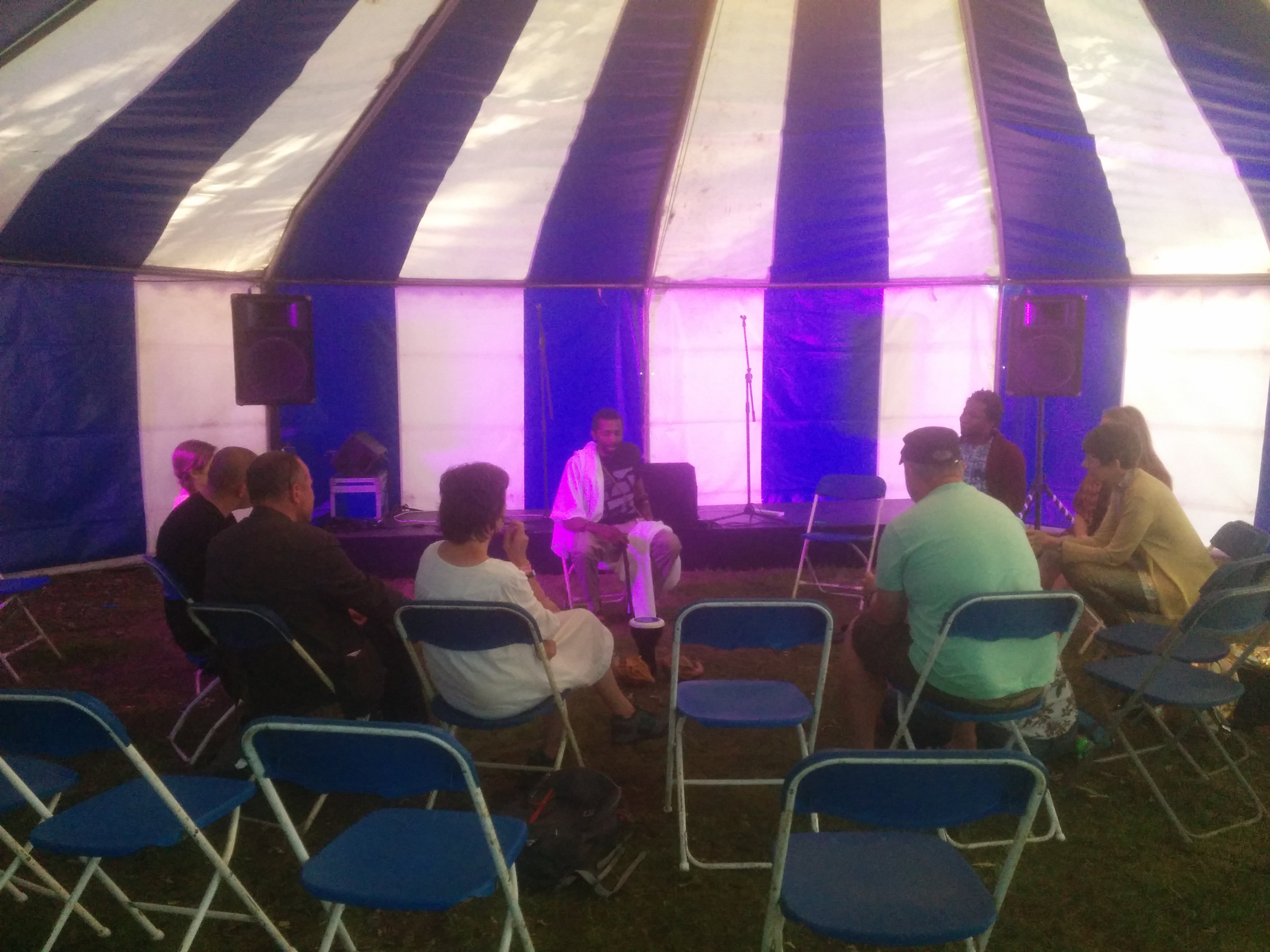 Tawona Sitholé during his scratch performance
Tawona Sitholé during his scratch performance
Photo: Bella Hoogeveen
Detention Dialogues
By: Ice and Fire’s Actors for Human Rights and Scottish Detainee Visitors’ Life After Detention Group
Ice and Fire’s Actors for Human Rights Outreach Project is dedicated to exploring human rights concerns through the creation and performance of documentary scripts.
Scottish Detainee Visitors provides support for people affected by immigration detention and advocates for an end to detention. This includes a Life After Detention group (LAD), which supports people with experience of detention and provides a platform for their voices to be heard.
Together they created Detention Dialogues: a piece of documentary theatre that gives voice to migrants’ stories through the creation of verbatim scripts. Three of these dialogues, featuring real-life testimonies, were performed at three different locations, followed by a discussion around the theme of detention. A film made by the LAD group, using only their mobile phones and voices was screened in the cinema. Making this simple but powerful film supported the group’s resilience, as well as created a visual and public testimony to their experience.
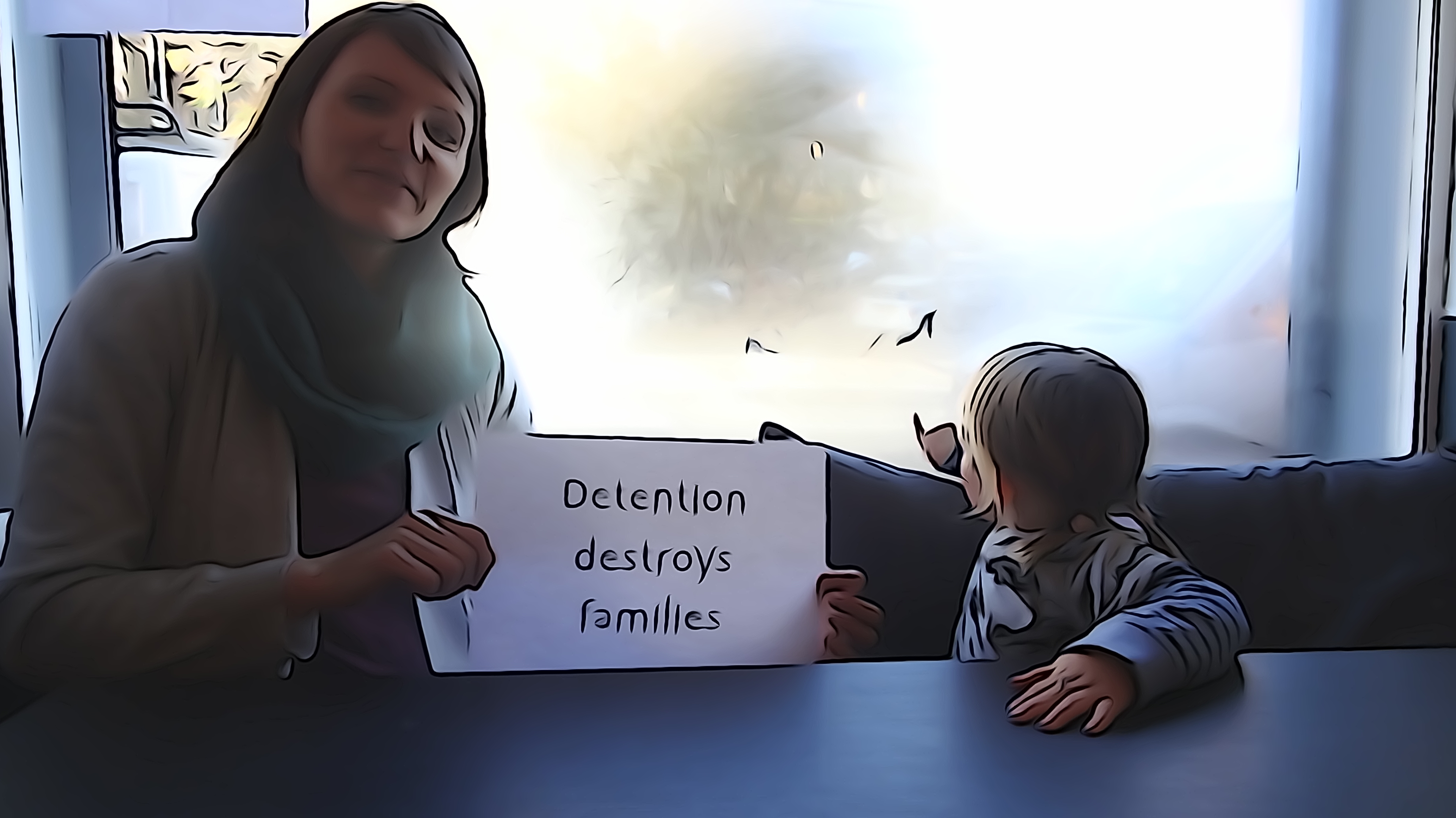
Self-Creative Writing Workshop
Corinne Aimee Ottroh, UNESCO RILA Ambassador led a self-creative writing and storytelling workshop to explore and celebrate integration, with the help of Kolb’s (1984) experiential learning theory.
In this guided workshop, participants were encouraged to reflect on their own integration journey, whether that be integration into a different country/society, a new neighbourhood or into a new job etc. Together they created their own stories, based on their experiences, to better understand their journey and to learn from it. Participants were offered the space to share their writings, if they felt comfortable doing so.
Professor Charles Forsdick – University of Liverpool
Just like last year, Professor Charles Forsdick held a talk on the subject of slavery. This year a slightly different angle, title and abstract below.
Anti-slavery knowledge network: connecting past and present
The Global Slavery Index estimates that there are 46 million enslaved people worldwide today. The talk will present the work of the Anti-slavery knowledge network, a Global Challenges Research Fund project funded by the Arts and Humanities Research Council. Drawing on work with heritage professionals and creative artists in Democratic Republic of Congo, Ghana and Sierra Leone, the network explores the existence of intersections between Atlantic slavery and contemporary slavery, and deploys the idea of activated community memory as a resource for social change. The project seeks to connect the long history of slavery, antislavery's unfinished work and the symbols of slave heritage to current antislavery challenges.
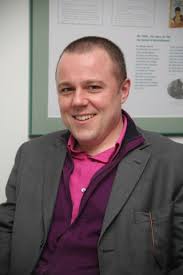
Women and Girls: Religion and Rights
By: Karen Wenell and Corinne Aimee Ottroh
This workshop session explored the priorities for supporting the religious needs of women and girls in refugee situations. Issues for consideration included access to clean water and lockable toilets, hygiene, health and psychosocial support, and how faith and beliefs relate to these priority areas. The workshop was part of an Arts and Humanities funded network project entitled Women, Faith and Humanitarian Interventions. Using stories drawn from the work of project partner NGO Global One, the workshop explored how rights to religion for women and girls can be advanced.
Graffiti workshop
In this interactive graffiti storytelling session for children, SprayPeace and Gameli Tordzro explored themes of migration and hospitality. Participants listened to the first half of the story, while watching the pictures appear, then joined in in the second half to add your own voice to the mix. They were invited to use graffiti to create their own ending to the story.
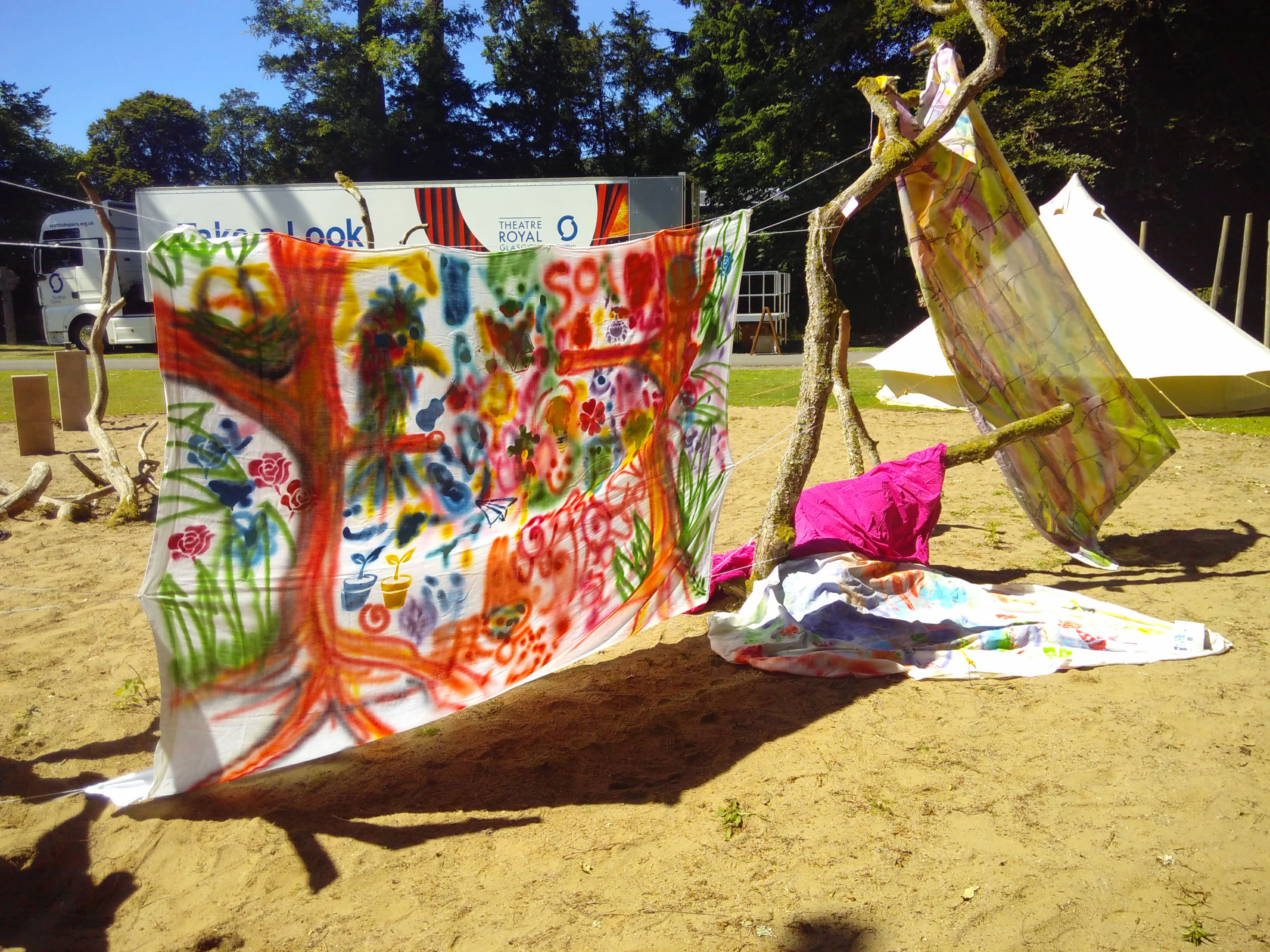 The final art work after the grafitti workshop
The final art work after the grafitti workshop
Photo: Bella Hoogeveen
Poetry performances from Writers Without Borders
Writers Without Borders member and UNESCO Chair Affiliate Artists Predencia Dixon and Ricky Dragon performed two sets of 15 minutes each or their own poetry. They challenged listeners' thinking about identity, migration and society with their salient words.
Writers Without Borders is a Birmingham-based group of writers from a variety of cultural backgrounds. Some have lived in England for many years and others have arrived in the country quite recently. The group includes professional, semi-professional, new and emerging writers. They meet on a monthly basis in central Birmingham to share their work. The group has published a number of anthologies of poetry and prose, and has taken part in a number of events in Birmingham and further afield. In addition they also organise performances of their work often working in collaboration with other organisations and groups and accompanied by musicians.
Film screenings
Life After Detention
By: Scottish Detainee Visitors’ Life After Detention group
The harm caused by detention does not end once a person is released. For many, the trauma of detention, and the struggles with uncertainty, continue. This is the subject of ‘Life After Detention’, a new film made in collaboration with the Life After Detention group from Scottish Detainee Visitors. The group filmed aspects of their life in Glasgow on their mobile phones and worked with film-maker and SDV volunteer, Alice Myers, to create the film. It was premiered at an Unlocking Detention event on Tuesday 12 December at the Glad Cafe in Glasgow.
The film was followed by a discussion with Shirley Gillan, coordinator of Scottish Detainee Visitors.
Gedzem Kutrikuku
Director and producer: Gameli Tordzro
Executive Producer: Alison Phipps
This 1-hour documentary film by Gameli Tordzro with Selorm Tay, Eli Tordzro and Sedem Tordzro is about a three-week visit to the Noyam African Dance Institute in Ghana by a team of researchers from the UK, Uganda, Gaza and Ghana, to devise a community theatre piece on the themes of distress, resilience and well-being. Visitors were advised to pay special attention to the multilingual component of the work.
The film was followed by a Q&A session with Gameli Tordzro and Alison Phipps.
1745 – An Untold Story of Slavery
Producer: John McKay
By: Morayo and Moyo Akandé
When two young black slaves escape into the wilds of 18th century Scotland, they must use all of their courage and strength to survive, unite, and stay free.
1745 highlights a forgotten part of Scotland’s history: while Scotland was fighting for its national freedom in that fateful year, its economy was in large part founded on the booming colonial slave trade. While the majority of slavery happened elsewhere - off-stage, across the Atlantic - there were African slaves here, kept as trophies and pets in the houses of their rich merchant masters. “1745” was inspired by advertisements that writer, Morayo Akandé, discovered for runaway slaves, placed in Scottish newspapers of the time.
The film was followed by a Q&A session with John McKay.
